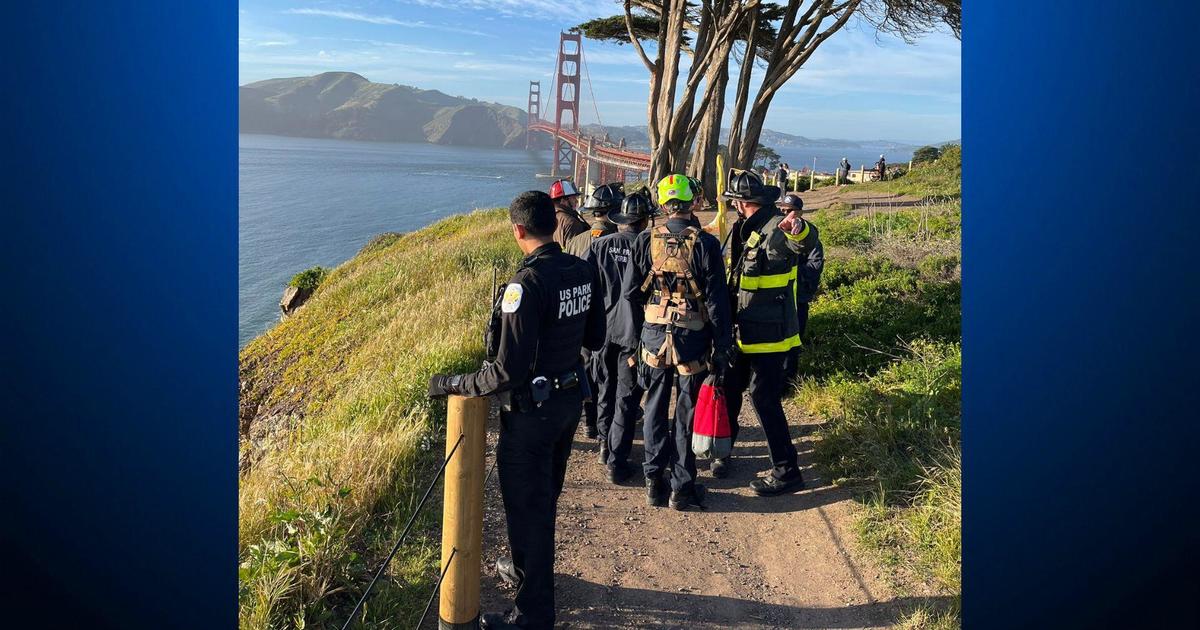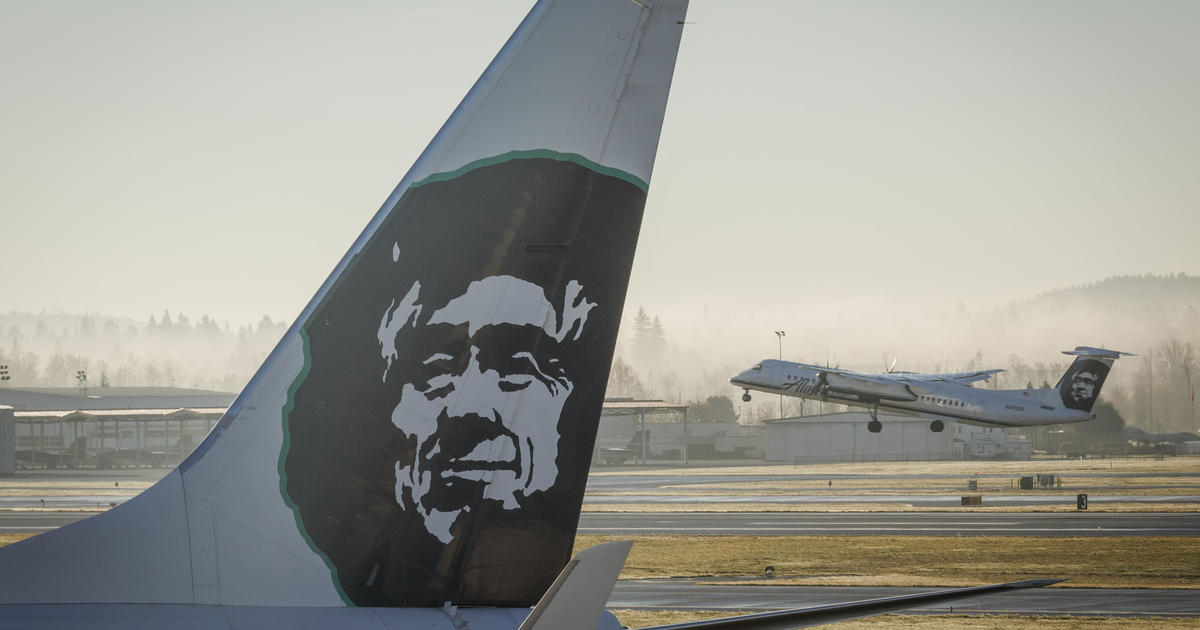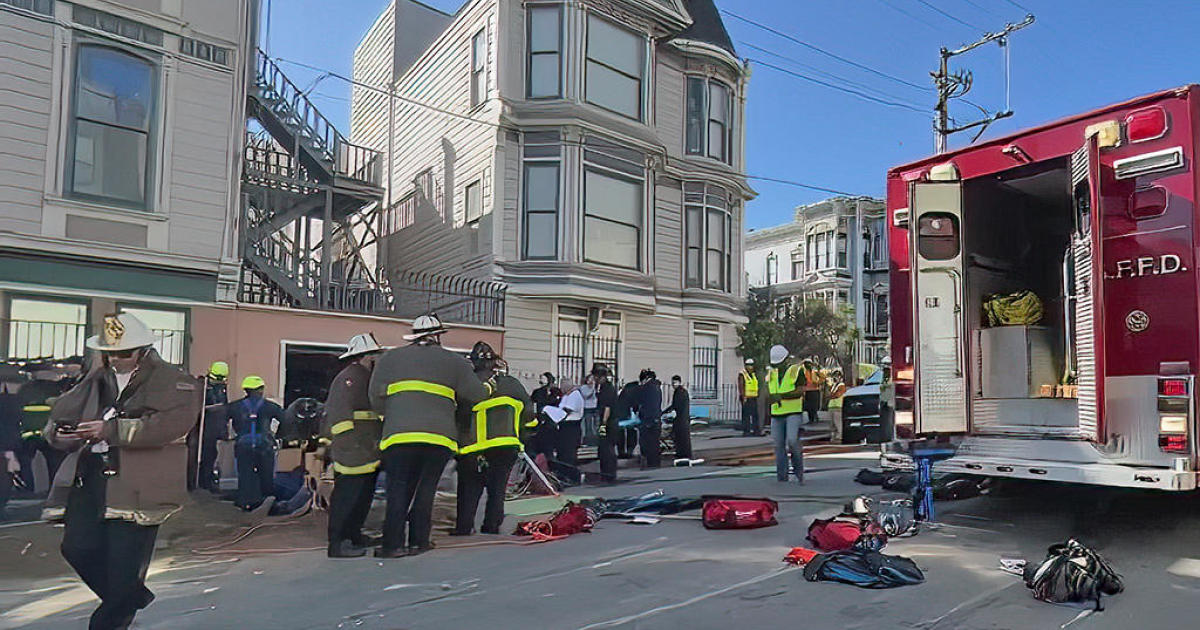Massive Fallout From Beef Recall Involving Slaughterhouse In Petaluma
PETALUMA (KPIX 5) -- A recall of close to 9 million pounds of beef involving a Bay Area slaughterhouse expanded across the U.S. and into Canada on Wednesday. The impact is being felt far and wide, from major retailers, to mom-and-pop stores, and to small ranches known for high-end steaks.
Walmart and several major supermarket chains have already pulled frozen items off their shelves, because they contain beef that may have come from sick cows. But that's not the case at hundreds of smaller stores.
At the Bonfare market in Alameda, KPIX 5's visit came as a surprise. The owner had no clue that some of the Hot Pockets in his freezer have been recalled. The beef came from Rancho Feeding Corporation in Petaluma.
Nearly a thousand mom-and-pop businesses and gas station convenience stores listed on the USDA's website are still selling potentially tainted products. And we found many of them don't know it.
"It's possible then that they are a customer of a customer," said Jeremy Russell with the North American Meat Association.
Russell said that's the way recalls work. Rancho Feeding Corporation compiles a list of its clients, who then call their clients. And we're talking about a year's worth of meat.
"It would not be totally surprising to me that they are having to go back in time essentially to communicate with folks who haven't carried the product for months and months," he said.
Information so far has been spotty but here are the recalled products we know of so far: Two versions of Philly Steak and Cheese Hot Pockets, made by Nestle, some packaged hamburger patties made by the Jensen Corporation, and beef jerky products made by Tillamook Country Smoker.
More Information About Beef Recall:
So far, no illnesses have been reported.
KPIX 5 tried to get answers from the USDA on what other products might be involved. They told us to call Rancho's quality control manager. But the person who answered the phone told us he had been laid off.
Frozen processed products aren't the only items on the recall list: High-end organic grass-fed beef is on there as well.
Tara Smith showed KPIX 5 the damage: 30 boxes of her frozen beef have been put on hold, also part of the massive nationwide recall.
"It doesn't make any sense," she said.
Because the cows on Smith's small ranch in Sonoma County are grass fed, and as healthy as can be. "Every day the cows move. The thing about grass-fed beef is that you have a lot more nutrition that is in it," she said.
But her cows were also butchered at Rancho, which is now under investigation for "processing diseased and unsound animals."
Tara Firma Ranch is one of dozens of local grass-fed beef producers hit hard by the recall.
Adam Parks sells the meat at his butcher shop in Petaluma and said the recall has given his grass-fed industry an undeserved black eye. "This has been a burgeoning movement in Northern California, bringing the highest quality grass fed, well raised, well cared for humanely butchered beef to our local consumers," he said.
The local ranchers said don't believe they should be included in this recall. They said it's too broad, because their grass fed cows brought into slaughter here were in the minority. Rancho Feeding Corporation was mostly in the business of slaughtering so called "retired" dairy cows.
"Those animals do tend to be older," said Jeremy Russell with the North American Meat Association. He said older dairy cows are used to make cheaper ground beef products.
"That is exactly why the United States sets a minimum standard for any animal that is going to enter the food supply. That is why they have inspectors present," Russell said.
The USDA has an onsite office at Rancho, but in a statement said the processing of the diseased cattle was done "without the benefit of federal inspection." Parks said he knows the locally raised grass-fed beef was properly inspected.
"We can prove our animals are safe. They are done on a separate day, they don't comingle with the dairy cows," he said. Parks said there could not be any cross-contamination.
"Why go to the extreme?" said Tara Smith. "All it's done is shut down a plant that will really hurt all of the local grass-fed beef growers here."
Rancho voluntarily closed operations after the recall. It was the last remaining slaughterhouse in the Bay Area, which means local ranchers will have to shuttle their cattle to slaughter hours away. They said it's not only cruel for the cows, but the expense could put them out of business.



